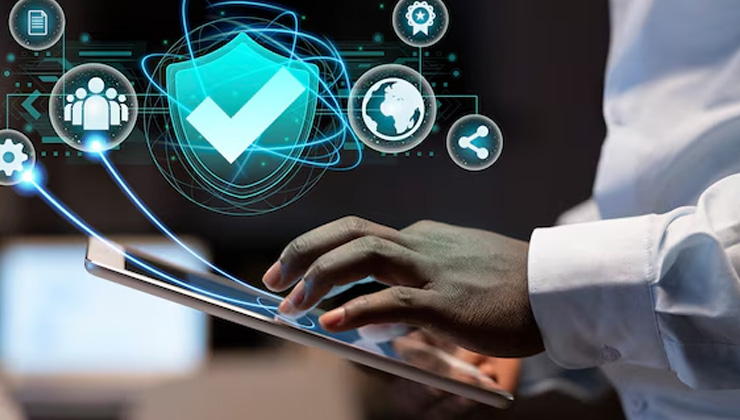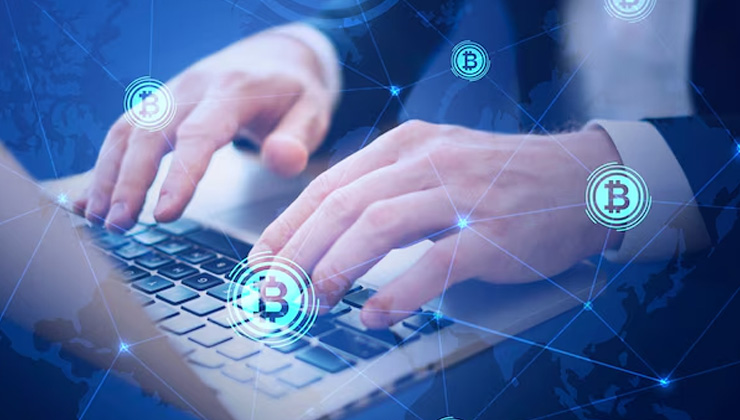
Imagine a world where sending money to someone across the globe is as easy as handing them cash in person. No delays, no middlemen, and no hefty fees. This is the vision that blockchain technology promises for the future of financial transactions—a future where trust is built into every exchange and financial systems are streamlined and accessible.
Blockchain is essentially a digital ledger, a way of recording information that makes it nearly impossible to alter once it's been added. Think of it as a chain of blocks, where each block contains a record of transactions. Every time a new transaction occurs, it's verified by multiple computers, added to the chain, and secured by complex encryption. This decentralized process makes blockchain uniquely transparent and secure.

In today's financial system, transactions are usually processed by intermediaries like banks or payment processors. These institutions verify the transaction, record it, and charge fees for their services. With blockchain, this entire process changes. Since the blockchain network itself verifies and records each transaction, there's no need for a middleman. This means that you could transfer money directly to someone without the delay or expense of traditional banking fees.
For individuals, this could mean sending money to family members overseas instantly, without paying high fees to transfer companies. For businesses, it could streamline cross-border payments, reducing operational costs and making global commerce more accessible.
Another powerful feature of blockchain is its security. Each transaction on the blockchain is encrypted and added to a permanent record, making it extremely difficult to tamper with or hack. This level of security is particularly valuable in a time when data breaches and cyberattacks are on the rise. For consumers, blockchain can offer peace of mind by ensuring that their financial information is secure and protected.
In addition, blockchain's transparency means that all participants in a transaction can view its history. For instance, if you're buying a product, you could track its journey from manufacturer to retailer, ensuring it's authentic and ethically sourced. This type of traceability could be revolutionary in industries like luxury goods, pharmaceuticals, and agriculture, where verifying the authenticity of a product is crucial.
One of the most exciting aspects of blockchain is its potential to improve financial inclusion. Today, millions of people around the world remain unbanked, meaning they have limited or no access to traditional banking services. Blockchain offers a way for these individuals to participate in the global economy. With a smartphone and an internet connection, someone in a remote village could use blockchain to make and receive payments, save money securely, and even access credit through decentralized finance (DeFi) platforms.

Blockchain also enables something known as 'smart contracts.' These are self- executing contracts where the terms are directly written into code. Imagine a scenario where you rent a car online. Instead of dealing with paperwork and deposits, a smart contract on the blockchain could automatically unlock the car when payment is received and ensure that it's returned on time. These programmable transactions are fast, reliable, and remove the need for third-party verification, opening up endless possibilities for automation in finance and beyond.
While blockchain holds enormous potential, there are still challenges to overcome, such as regulatory hurdles, energy consumption, and public adoption. However, with ongoing innovation and investment, blockchain is gradually becoming a trusted tool in finance. Over the coming years, it may reshape our entire approach to money, making financial transactions faster, cheaper, and more accessible to everyone.
In the end, blockchain could do for financial transactions what the internet did for information—democratize it, making it open, accessible, and secure for people all around the world. And as this technology evolves, the future of finance could look dramatically different, one block at a time.
Consumers Guide membership grants you early bird access to the latest tech gadgets on the market, as well as huge discounts that aren't available to anyone else. Sign up below to receive all the latest deals on tech gadgets that are ideal as gifts for any occasion, before they're available to the mass market. Membership of Consumers Guide is completely free - no strings attached! Once you sign up, you will occasionally receive newsletters sent to your inbox with all the latest and greatest gadget discounts and deals - you also can unsubscribe at any time. To join for free, simply enter your e-mail below and click "Subscribe":